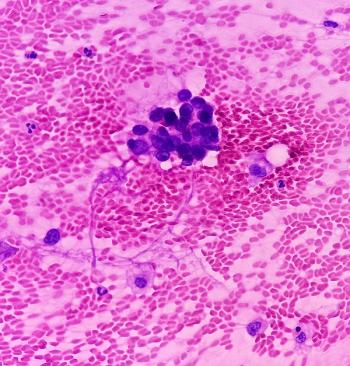
A study reveals a 14-gene assay guides chemotherapy decisions effectively in patients with early-stage non-small cell lung cancer (NSCLC).

A study reveals a 14-gene assay guides chemotherapy decisions effectively in patients with early-stage non-small cell lung cancer (NSCLC).

Saad Usmani, MD, MBA, FACP, FASCO, discusses the subgroup analysis of transplant-ineligible patients with newly diagnosed multiple myeloma from the CEPHEUS trial.
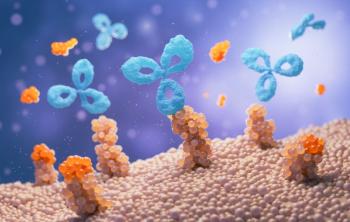
Explore the complexities of managing toxicities in breast cancer treatments, including endocrine therapies, antibody drug conjugates, and immune checkpoint inhibitors.

Compared with fulvestrant, vepdegestrant significantly extended progression-free survival and improved response rates.
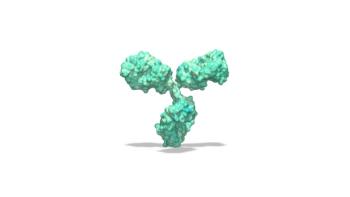
Experts discuss BiTE therapy in treating lung cancers, focusing on innovative agents like tarlatamab and amivantimab, and their toxicity management.
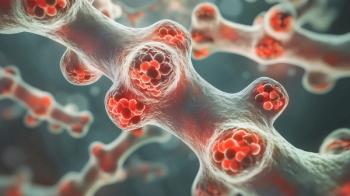
MRD testing transforms multiple myeloma treatment, guiding personalized strategies and improving patient outcomes through innovative testing methods.

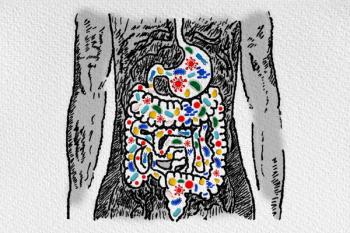
Explore how the gut microbiome influences cancer therapy responses, resistance mechanisms, and the potential of microbiota-focused strategies for improved outcomes.

Gurjyot K. Doshi, MD, discusses key updates to medically integrated pharmacy standards, which reflect the evolving landscape of oral oncolytic therapy.

Groundbreaking oncology drugs transform treatment for glioblastoma, HR+ breast cancer, and small cell lung cancer.

Enhanced dermatologic management reduces skin rash and improves quality of life for patients with EGFR-mutant non-small cell lung cancer.

A study of early-onset colorectal cancer found significant racial disparities, with younger patients more frequently diagnosed at advanced stages.


Zongertinib shows significant benefits in managing symptoms and improving quality of life for patients with HER2-mutated non-small cell lung cancer.

Two abstracts from the American Society of Clinical Oncology (ASCO) annual meeting demonstrate that pretreatment DPYD genotyping improves the safety and cost-effectiveness of fluoropyrimidine chemotherapy, with oncology pharmacists playing a pivotal role in implementing and optimizing genotype-guided dosing strategies.
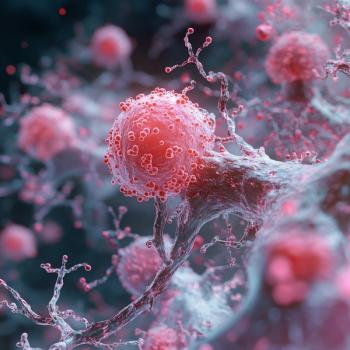
Corrine Stahura, PharmD, and Sophia Gilardone, PharmD, BCOP, discuss recent clinical trial data and evolving guideline recommendations for HER2- and HER3-directed antibody-drug conjugates (ADCs) in non–small cell lung cancer (NSCLC), highlighting differences in efficacy, safety, and patient selection criteria.

Hope Rugo, MD, discusses a multi-institutional real-world analysis showing that rechallenging trastuzumab deruxtecan after grade 1 interstitial lung disease (ILD) is generally safe and effective.

The investigators suggest that early detection and treatment of chronic kidney disease (CKD) in childhood cancer survivors may decrease late complications and mortality.

This segment takes a deeper dive into toxicity management—focusing not just on what to monitor, but how institutions are putting these protocols into action in real-world clinical settings.

Pre-treatment DPYD genotyping significantly reduces hospitalizations and costs for patients with cancer, enhancing safety and efficiency in oncology care.

Grace Nguyen, PharmD, BCPS, provides real-world experiences with DPYD genotype-guided fluoropyrimidine dosing, highlighting how pharmacist-led interventions and tailored dose adjustments can help mitigate toxicity risks and optimize treatment in variant carriers.

Corrine Stahura, PharmD; and Sophia Gilardone, PharmD, BCOP, discuss how patient- and treatment-related factors influence the risk of severe toxicity with antibody-drug conjugates (ADCs) in non–small cell lung cancer (NSCLC).

Corrine Stahura, PharmD; and Sophia Gilardone, PharmD, BCOP, discuss the distinct adverse effect profiles of HER2- and HER3-targeted antibody-drug conjugates—particularly the risk and management of interstitial lung disease—and offer practical guidance based on clinical trial data and treatment protocols.

The process teaches resilience, adaptability, and self-awareness.

APOBEC3 mutagenesis emerges as a key factor in breast cancer treatment resistance, offering new avenues for targeted therapies and predictive biomarkers.

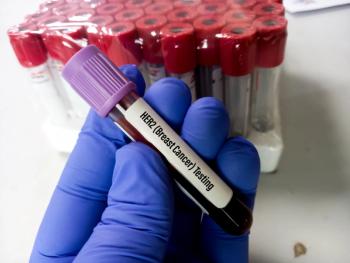
Trastuzumab deruxtecan (T-DXd) yielded favorable outcomes and improved survival rates.
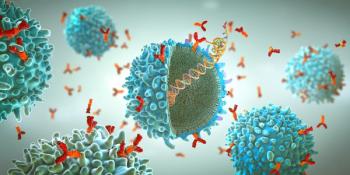
The report highlights the expanding role of pharmacists in navigating regulatory, financial, logistical, and clinical complexities to ensure safe, equitable, and effective delivery of cell and gene therapies amid a rapidly growing and evolving treatment landscape.

The data were presented at the ESMO Breast Cancer 2025 Annual Meeting.

In premenopausal women, denosumab significantly prevented bone loss and microarchitectural deterioration.